13. The Killing of a Sacred Deer (dir. Yorgos Lanthimos)
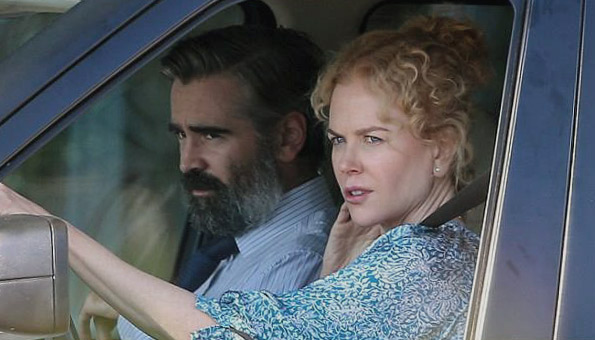
If you liked “The Lobster”, you’ll probably like this new feature by Greek writer and director Yorgos Lanthimos. I wasn’t convinced by the dystopian dramedy that earned him the Jury Prize at Cannes in 2015. I felt it was half a movie. The first part being a darkly funny film with amazing world building. The second part being a dull, boring slog.
‘The Killing of a Sacred Deer’ is also, unfortunately, half a movie. It starts well as we meet a successful surgeon (Colin Farrell) who’s married and has two kids. He starts a friendly relationship, almost paternal, with Martin (Barry Keoghan), a teenager who we immediately get is not “normal”. As the film progresses he becomes increasingly obsessed with the surgeon and his family which will quickly make things turn into dark places. Until that point, the film is creepy, mysterious and moody.
When the film hits its middle point, everything goes downhill. The sadism presented on screen is gratuitous. The only raison d’etre of the film is to make their characters suffer, make them go through horrifying situations. There’s no real moral questions or some kind of social commentary. It’s just violence for the sake of violence. “The Killing of a Sacred Deer” becomes a bizarre arthouse version of “Saw”.
There’s also inexplicable use of zooms to the character’s faces accompanied by a loud and over the top score that results in various unintentionally hilarious moments.
12. Jupiter’s Moon (dir. Kornél Mundruczó)

Cannes has many traditions and one of them is loudly booing films if you don’t like them. The boos are not only reserved for bad movies like “The Sea of Trees” or “The Last Face”, but also for masterpieces such as “L’Avventura”, “Taxi Driver”, “Pulp Fiction” and “Marie Antoinette”. This year, it was the turn of “Jupiter’s Moon” to receive them during its press screening. Is it an awful movie deservingly receiving that reaction? No. Is it a misunderstood masterpiece? No.
After being during a immigration police raid, a young refugee (Zsombor Jéger) obtains the power to levitate. During a medical appointment, a doctor (Merab Ninidze) discovers his magical abilities and starts using them to make himself rich. Meanwhile, an investigator (Gyorgy Cserhalmi) looks for the undocumented refugee, thinking that he could be involved with terrorist organizations.
This is not the glorious masterpiece the movie thinks it is. Narratively, it’s a very formulaic, sometimes campy cop chasing outlaw type of film. But its storytelling unoriginality is the least problematic flaw of the “Jupiter’s Moon”. Director Kornel Mundrukzo tries to do so many things at the same time (commentary on refugee crisis, reflection on the lost of faith in contemporary societies, action movie) that his film becomes a convoluted mess.
The movie is pretty entertaining and keeps a nice pace throughout. The real star here is the dazzling cinematography: if there’s a reason to see this movie is to admire the craftsmanship behind every shot.
Ultimately, however, I didn’t understand what the movie was trying to say about anything and I would bet that neither the director.
11. Redoubtable (dir. Michel Hazanavicius)
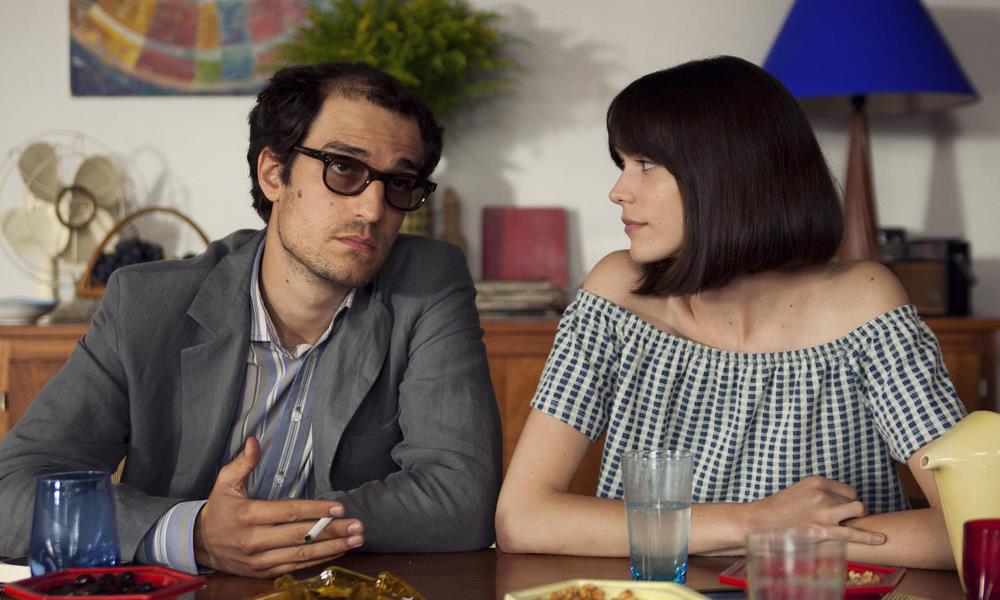
Michel Hazanavicius confessed his deep disappointment on the poor reception at 2014’s Cannes Film Festival of his film ‘The Search’, follow up to the highly acclaimed “The Artist” which earned him a Best Director Oscar. Hazanavicius considers “Redoubtable” his comeback but he should be ready to be disappointed once again.
Based on the book “Un an après” by Anne Wiazemsky, the film follows Jean Luc Godard’s increasing political interest after the making of his film “La Chinoise” in 1967 and the May 68 protests in Paris and how that engagement to the cause distanced himself with his wife, Anne.
Hazanavicius has made clear that he’s not trying to create a historically accurate depiction of the real Godard, he’s putting on screen his interpretation of the famous French auteur. He conveys this message through multiple meta references (sometimes the characters even break the fourth wall).
At the beginning, many of this self-referential jokes are cute but after a while we realize that they don’t serve a purpose to the story. In a cringe worthy scene, Godard and Anne are discussing their contempt for arbitrary nudity in film…while being completely naked themselves.
The film focuses on Godard’s relationship with his wife but it never really goes to new interesting places. Hazanavicius has made Godard just a jealous idiot. Some of his goofy moments are funny and there’s a recurring joke in which his glasses get constantly broken but, at the end, they don’t make the character memorable or three dimensional. He’s just a cartoon and a cliché. “Why don’t you make nice films like before”, a young woman asks him during a protest. He’s the artist laying on his past laureates that seems to be impossible to captivate the audience like he used to.
Louis Garrel is almost unrecognizable as Godard. The makeup and hairstyling team did a fantastic job on him. Stacy Martin is pitch perfect casting as Anne. When she wears that “Masculin feminin” inspired bob wig, she looks almost like a Godard character stereotype (in a good way). They have nice chemistry together.
But not just the characters look great but also the sets in which they’re in. The production design and costume design is fantastic with a beautiful array of vibrant yellows, blues and reds invading the screen which reminds us to the iconic look of Godard’s films.
10. Good Time (dir. Ben & Joshua Safdie)
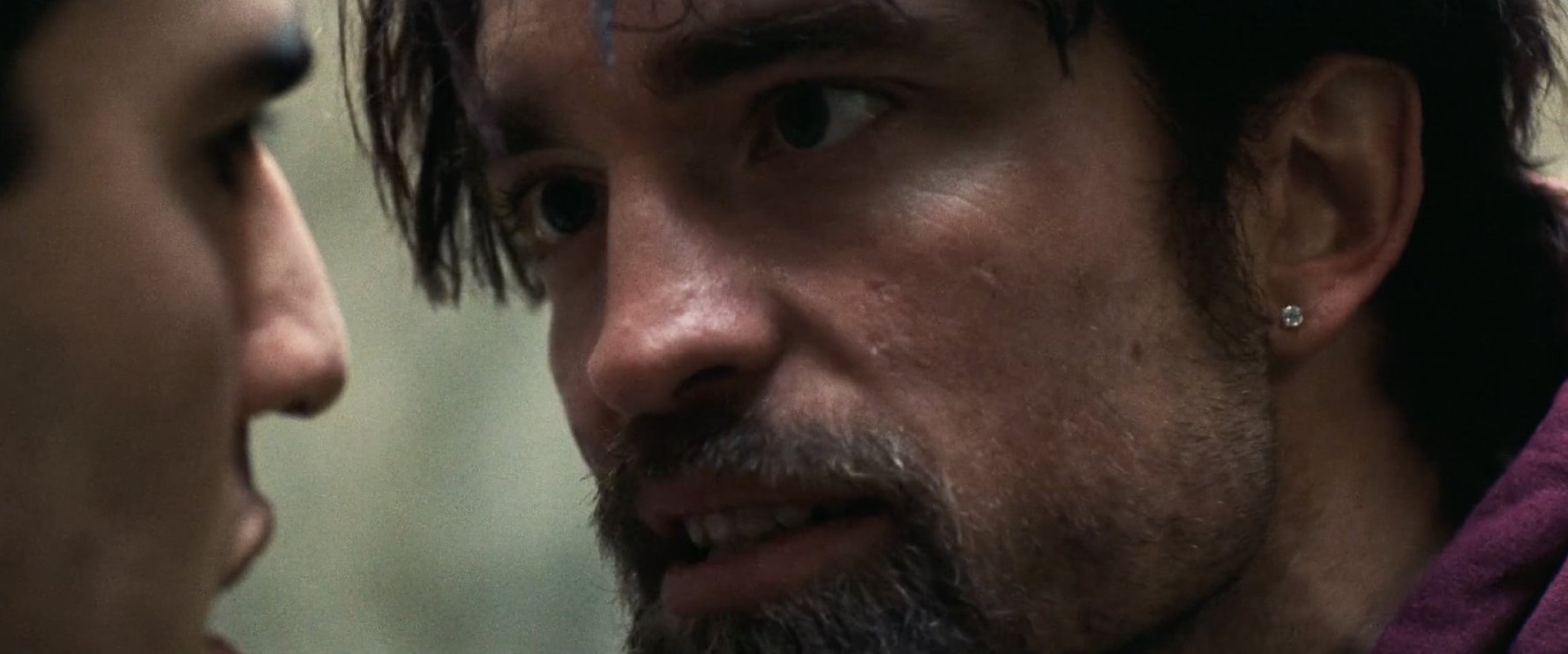
Cannes has become the platform for Robert Pattinson to show us he’s more than Twilight’s pretty face. Cosmopolis, Maps to the Stars and The Rover have all premiered at the Festival and have featured fine performances by him, although none of them comes even close to the brilliance of his acting in “Good Time”.
After the screening of the film, critics and audiences agreed that Pattinson was a frontrunner to win the Best Actor Award at the end of the Festival. While this didn’t happen, it’s proof of how good Pattinson is in this movie. He’s almost the only reason to see it.
“Good Time” is the story of a bank heist gone wrong. Connie manages to escape but his mentally handicapped brother is arrested. Now Connie will try to do everything to release him from prison. He’s a fascinating character. His eyes move constantly, always looking around, locating a threat or a source of escape. Connie loves his brother but he’s irresponsible. He purposely ignores his disability putting him at risk. If just that relationship was more fleshed out…
This is an entertaining piece but a deeply flawed one. Tonally, it’s all over the place. It’s drama but tries to have occasional comedic moments that involve Connie’s girlfriend (Jennifer Jason Leigh) and a convict he meets while trying to free his brother. None of those character is really funny which creates awkward scenes. The cinematography is ugly and the score is annoying. The film also suffers from an anti-climatic ending.
9. In the Fade (dir. Faith Akin)

Katja (Diane Kruger) sees her family killed during a terrorist attacked against them perpetuated by neo-nazis. She decides to seek revenge, through court or by herself.
Simple premise, simple movie. It mostly exists just to showcase the talent of its lead actor, this time Diane Kruger, making her German language debut and delivering the best performance of her career.
As for the the film itself, it’s just an average story of revenge and grief. The themes visited are very familiar but are executed well enough. It doesn’t try to be more than what it is. Its flaws are obvious. Many elements don’t even come close to assimilate reality and fall into caricature territory (the court scenes and many secondary characters are an example of that) but there are some scenes with intelligence and even elegance (there’s a beautifully shot moment in which Katja attempts suicide in her bathtub).
8. 120 Beats per Minute (dir. Robin Campillo)
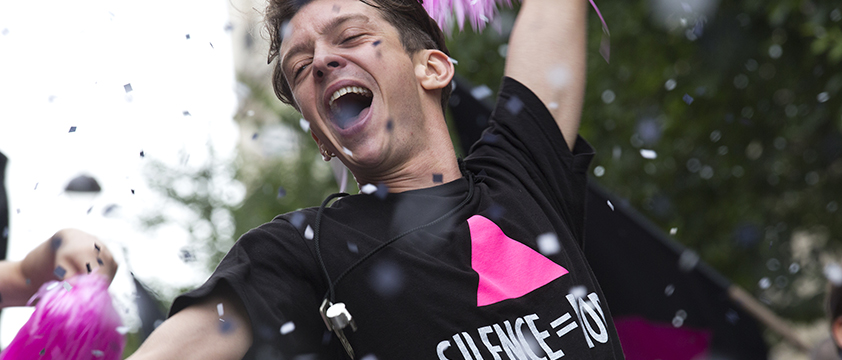
It’s December the 1st 1993, AIDS Prevention Day Worldwide. Parisians wake up in the morning as usual. But something’s different when they walk in the Place de la Concorde: a giant pink condom covers the Luxor Obelisk. Below, multiple signs read “STOP THIS CARNAGE”.
The responsible of such stunt? Act Up Paris, an association created in 1989 dedicated to fight HIV/AIDS and the government’s silence about the issue that costed thousands of lives. The characters in “120 Beats Per Minute”, activists of this association, are not seen doing this intervention, but we hear them talking about it. What we see is less “public” work.
We see them going to pharmaceutical companies and painting their corridors and offices with fake blood while demanding the release of results of a drug that could save thousands. We also see them handcuffing a conservative politician that refuses to acknowledge the epidemic of AIDS Europe was going through late 80s and early 90s. It’s during those moments, the behind the scenes of their interventions, “120 Beats Per Minute”, winner of this year’s Grand Prix, is at its best.
It’s fascinating to see the activists discussing what to do next and how to do it, since they’re literally running out of time as their diseases are taking over them at different paces. Some will think use of force is necessary, other will disagree: it’s always interesting to see them debating specially if you’re not familiar with their real life actions.
Director Robin Campillo establishes a particular group dynamic that makes the members of Act Up feel like a family, a mini society within a society. There’s the quirky rules in the group like instead of clapping, they need to snap their fingers to show approval but also share more complex relationships. None of the characters are really interchangeable, each of them are their own entity.
However, when the film focuses on their private lives, it falls apart. A romantic relationship grows between Sean (a brilliant Nahuel Perez Biscayart) and Nathan (Arnaud Valois) that’s as conventional as it can get. When this part of the film takes over its last half, the film gets less interesting until the predictable and uninspired ending arrives.
7. The Meyerowitz Stories (dir. Noah Baumbach)
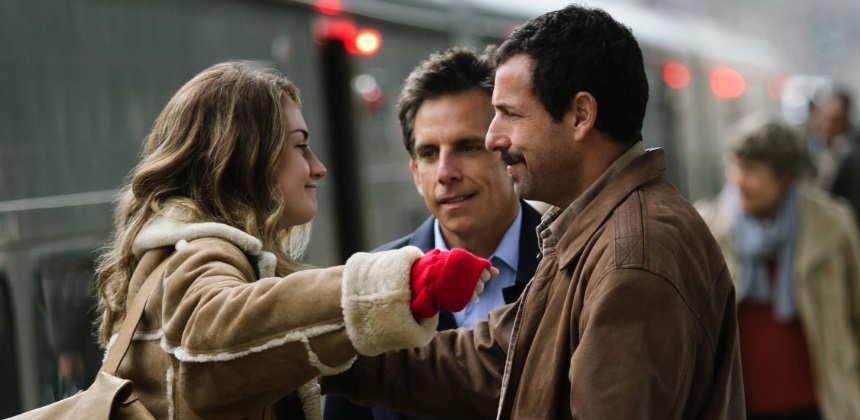
From “Margot at the Wedding” to “Mistress America” passing through “The Squid and the Whale” and “Frances Ha”, writer/director Noah Baumbach has largely proven himself to be a great filmmaker. He remains however, a stranger to most mainstream audiences unlike his friend and collaborator Wes Anderson. Will “The Meyerowitz Stories” help him reach to a wider audience? I don’t think so, but I do believe that while it’s not as witty as his other comedies, it’s a strong entry to an impressive filmography.
Everybody in the Meyerowitz family is sad. There’s Danny (Adam Sandler), who’s first scene shows he is even unable to park his car, he limps on one leg and it’s unemployed. On top of that, he’s ready to be left by the only person that has kept him company: his daughter. He comes back to live with his father which doesn’t make him any good as he’s reminded constantly what a brilliant career he could have pursued in the music business and how neglected he was as a kid.
Dustin Hoffman plays the patriarch of the family, Harold, who’s sad because he was never able to achieve success as a sculptor like many of his friends did. His two other children, Matthew (Ben Stiller) and Jean (Elizabeth Marvel) don’t feel good neither. The first one blames his father for maybe giving him too much attention and the latter blames him of giving her too little attention. But as many Baumbach films are, “The Meyerowtiz Stories” is a funny film about sadness and a successful film about failure.
The family dynamics are sharply written and brought to life by a wonderful ensemble cast. Many praises have gone in the direction of Adam Sandler, who delivers his best performance since his 2003 Cannes entry “Punch Drunk Love”, but I believe that the real stand outs were Ben Stiller and Dustin Hoffman.
Stiller is the best he’s ever been portraying the most nuanced character of his career and Hoffman is hilariously dry as a terrible but seemingly inoffensive father that can suck the life out of any conversation. Emma Thompson and Elizabeth Marvel, in secondary roles, are quirky and funny as well.